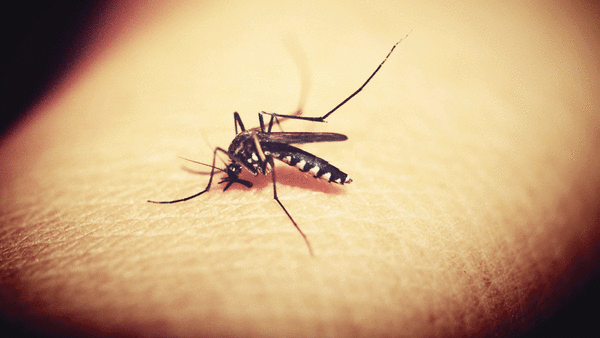

An alert has been sounded over Dengue Fever (DF), as some cases have been recorded in Ruwi, Al Hamriya, and Darsait.
For the last six weeks, hospitals in Ruwi have received individuals from labor camps diagnosed with DF.
Dr. Hilal al Hashami, Pediatric Infectious Diseases Consultant at Royal Hospital and Member of Oman Medical Society, said dengue fever is one of the most widespread mosquito-borne viral infections.
“Dengue Fever (DF) is a self-limiting illness in most patients, but a few patients will develop dengue hemorrhagic fever DHF, which is serious and can be a life-threatening disease,” Dr. Al Hashami explained.
Aedes mosquitoes that transmit dengue lay their eggs in stagnant water, and it takes only seven to ten days for the eggs to hatch and turn into fully formed mosquitoes.
“We had patients who had low platelets, and later we had individuals coming from other areas as well, but fewer in number. Initially, the cases were a serious degree where there were situations requiring us to perform platelet transfusion, and some of the patients needed ICU care. Now the cases have reduced, and whoever was positive, the severity has come down, but we are noticing that we are getting cases from around Muscat, very few but from other locations. That makes us wonder if the mosquitoes are spreading - that is the interpretation,” said Dr Satish Babu, Specialist Internal Medicine Apollo Hospitals Muscat in Ruwi.
In relation to the symptoms of Dengue Fever, fever is present in almost all cases, but patients also might have headaches and pain behind the eyes, joint and muscular aches, the lower back ache also exists, said Dr. Wahid Khan, Specialist Internal Medicine and Critical Care, Head of Acute Care, Apollo Hospitals Muscat.
“Yet, in some of the cases, the patients just came with cough with a stuffy nose and just looked like symptoms of a common cold, but when we checked the throat, it was red, and in the current scenario, it suggested to us it could be DF. Feeling tired for weeks together could also be a symptom of Dengue Fever,” explained Dr Khan.
The incubation period is usually four to seven days. He also explained that some might be asymptotic, but if they live in the same locality or cohort, they might prove positive if they are tested.
When asked what is the best way to improve the level of platelets, Dr Khan said hydration is important, but if there is bleeding, it is better to go through a blood transfusion.
“It is the nature of the disease to cause the platelets to go low, and the best way to tackle the issue is to give the patient a good amount of fluids orally, but if they are vomiting or have pain in the abdomen, and have low appetite, in that case, IV hydration is the best option in the hospital setting. But if the platelets go really low and if patients develop bleeding and develop skin bruises, bleeding from the nose or mouth or dark-colored stools that could suggest ongoing internal bleeding, then it is advisable to admit the patient in the house or be admitted to the hospital for blood transfusion,” he explained.
Dr. Wahid said in some cases, a daily visit to the hospital is required to check the blood.
“What is also important is to avoid the common painkillers as dengue impacts the lever functions during its phase. Paracetamol is usually given but lets it be with monitoring, and one should not let the fever worsen in the body because if it goes wrong, it really goes wrong.
Pregnant ladies, babies, the elderly - somebody over 65 to 70 years of age, individuals with obesity, people with diabetes and kidney failure, a blood disorder, or people who are already on aspirin should definitely consult a doctor if anyone has symptoms of fever in this situation because it can become lethal. So my advice is to get medical help when it is necessitated,” Dr Wahid pointed out.
Oman Observer is now on the WhatsApp channel. Click here



